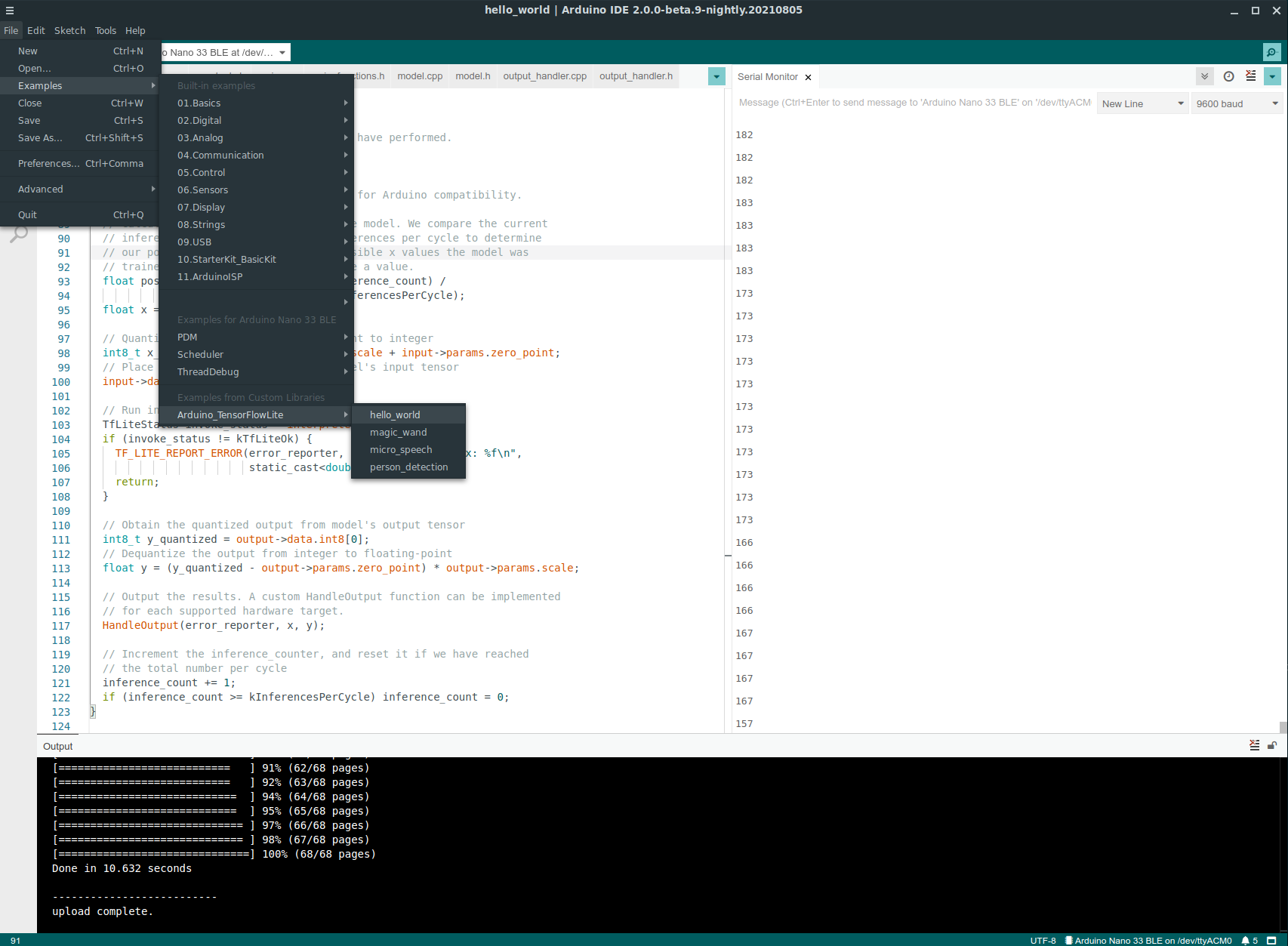TensorFlow Lite Micro Library for Arduino
This repository has the code (including examples) needed to use Tensorflow Lite Micro on an Arduino.
Build Status
| Build Type | Status |
|---|---|
| Arduino CLI on Linux | |
| Sync from tflite-micro |
How to Install
Arduino IDE
The easiest way to install this library is through the Arduino's library manager. In the menus, go to Sketch->Include Library->Manage Libraries. This will pull the latest stable version.
GitHub
If you want to install an in-development version of this library, you can use the
latest version directly from this GitHub repository. This requires you clone the
repo into the folder that holds libraries for the Arduino IDE. The location for
this folder varies by operating system, but typically it's in
~/Arduino/libraries on Linux, ~/Documents/Arduino/libraries/ on MacOS, and
My Documents\Arduino\Libraries on Windows.
Once you're in that folder in the terminal, you can then grab the code using the git command line tool:
git clone https://github.com/tensorflow/tflite-micro-arduino-examples Arduino_TensorFlowLiteChecking your Installation
Once the library has been installed, you should see an Arduino_TensorFlowLite entry in the File->Examples menu of the Arduino IDE. This submenu contains a list of sample projects you can try out.
Compatibility
This library is designed for the Arduino Nano BLE Sense 33 board. The framework code for running machine learning models should be compatible with most Arm Cortex M-based boards, such as the Raspberry Pi Pico, but the code to access peripherals like microphones, cameras, and accelerometers is specific to the Nano.
License
This code is made available under the Apache 2 license.
Contributing
Forks of this library are welcome and encouraged. If you have bug reports or fixes to contribute, the source of this code is at https:://github.com/tensorflow/tflite-micro and all issues and pull requests should be directed there.
The code here is created through an automatic project generation process from that source of truth, since it's cross-platform and needs to be modified to work within the Arduino IDE.
